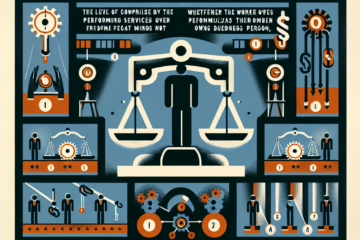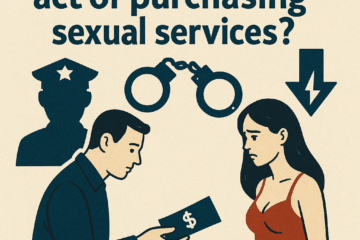In today’s society, the existence of a criminal record can have far-reaching consequences that extend beyond the immediate implications of legal proceedings. Understanding the nature of criminal records, their legal ramifications, and the personal toll they can exact is crucial for individuals navigating life with a record. This exploration sheds light on the multi-faceted challenges faced by those with a criminal history, as well as offers strategies to manage and mitigate these challenges.
Table of contents
Understanding the Nature of Criminal Records
Criminal records are official documents that detail an individual’s criminal history, encompassing arrests, charges, convictions, and sometimes even acquittals. These records are maintained by law enforcement agencies and can vary in their content and accessibility depending on jurisdiction. The nature of a criminal record is such that it serves as a comprehensive account of an individual’s interactions with the criminal justice system, often including both minor infractions and more serious offenses. Understanding what constitutes a criminal record is essential for grasping its implications on one’s life.

The creation and maintenance of criminal records are guided by laws and regulations that differ significantly across regions. In some areas, records may be expunged or sealed under certain conditions, while in others, they remain accessible indefinitely. This variability can lead to confusion and frustration for individuals seeking to comprehend the full scope of their record’s impact. Moreover, the digital age has amplified the ease with which these records can be accessed, further complicating the landscape for those trying to move past their criminal history.
The nature of criminal records also raises questions about privacy and the balance between public safety and individual rights. While these records are intended to inform law enforcement and, in some cases, the public, they can also perpetuate stigma and discrimination. The debate over who should have access to criminal records and how they should be used is ongoing, highlighting the need for a nuanced understanding of their nature and purpose.
Ultimately, understanding the nature of criminal records involves recognizing their role in the broader criminal justice system and their potential to influence various aspects of life. It requires an awareness of the legal frameworks governing records, the societal attitudes they evoke, and the personal ramifications for those who carry them.
Legal Implications of Having a Record
The legal implications of having a criminal record are profound and can affect numerous aspects of an individual’s life. One of the most immediate consequences is the impact on employment opportunities. Many employers conduct background checks as part of their hiring process, and a criminal record can be a significant barrier to securing a job. Certain professions, particularly those requiring licenses or clearances, may be entirely off-limits to individuals with specific types of convictions.
Housing is another area where legal implications are evident. Landlords frequently perform background checks on prospective tenants, and a criminal record can result in denial of housing applications. This can lead to difficulties in finding stable and secure living arrangements, further complicating efforts to reintegrate into society. Additionally, individuals with records may face challenges in obtaining loans or other forms of financial assistance, limiting their economic opportunities.
Beyond employment and housing, having a criminal record can also affect one’s ability to travel. Some countries have strict entry requirements that bar individuals with certain types of criminal records from entering. This can limit personal and professional opportunities, as well as affect family relationships when travel is necessary for reunification or caregiving purposes. The legal implications of a record thus extend beyond national borders, impacting global mobility.
Moreover, the legal consequences of a criminal record can include ongoing interactions with the criminal justice system. Individuals on probation or parole may be subject to regular check-ins and restrictions on their activities. Failure to comply with these conditions can result in additional legal consequences, perpetuating a cycle of involvement with the justice system. Understanding these implications is crucial for managing life with a record and seeking opportunities for rehabilitation and reintegration.
Personal Impact: Social and Emotional Effects
The personal impact of having a criminal record extends beyond legal ramifications, deeply affecting social and emotional well-being. Stigma and discrimination are common experiences for individuals with records, leading to feelings of isolation and alienation. The knowledge that one’s past is readily accessible to others can create an environment of mistrust and apprehension, making it difficult to form new relationships or maintain existing ones.
The social impact is particularly pronounced in community settings, where individuals may face judgment or exclusion based on their criminal history. This can affect participation in community events, access to social services, and engagement in local activities. The fear of being judged or misunderstood often results in withdrawal from social interactions, exacerbating feelings of loneliness and depression.
Emotionally, the burden of carrying a criminal record can lead to a diminished sense of self-worth and confidence. Individuals may struggle with guilt, shame, and anxiety as they navigate the complexities of life with a record. The pressure to prove oneself in the face of ongoing stigma can be overwhelming, leading to stress and mental health challenges. Support systems, such as family and friends, play a critical role in mitigating these effects, but they may also be strained by the implications of a criminal record.
The personal impact of a criminal record underscores the need for empathy and understanding from society. Recognizing the emotional toll and social challenges faced by individuals with records is essential for fostering an inclusive environment that supports rehabilitation and reintegration. Efforts to reduce stigma and promote acceptance can significantly improve the quality of life for those affected by a criminal history.
Strategies for Managing Life with a Record
Managing life with a criminal record requires a strategic approach that encompasses legal, social, and personal dimensions. One effective strategy is seeking legal assistance to explore options for expungement or sealing of records. This can provide a fresh start and alleviate some of the barriers associated with a criminal history. Legal professionals can offer guidance on eligibility and the process involved, helping individuals navigate the complexities of the legal system.
Building a strong support network is another crucial strategy. Family, friends, and community organizations can provide emotional support and practical assistance, such as job referrals or housing leads. Engaging with support groups or counseling services can also be beneficial, offering a safe space to discuss challenges and develop coping mechanisms. These networks can help individuals build resilience and foster a sense of belonging.
Education and skill development are vital components of managing life with a record. Pursuing further education or vocational training can enhance employability and open up new opportunities. Many organizations offer programs specifically designed for individuals with criminal records, providing pathways to gainful employment and personal growth. Taking advantage of these resources can facilitate the transition to a more stable and fulfilling life.
Advocacy and self-empowerment are also important strategies. Becoming informed about one’s rights and actively participating in advocacy efforts can lead to positive change, both personally and within the broader community. By sharing experiences and raising awareness, individuals can contribute to a more understanding and supportive society. Managing life with a record is a multifaceted journey that requires determination, resilience, and a proactive approach to overcoming challenges.
Navigating life with a criminal record presents a complex array of challenges that intersect with legal, social, and personal domains. Understanding the nature of these records and their implications is crucial for those affected, as well as for the broader society that interacts with them. By acknowledging the personal impact and exploring effective strategies for management, individuals can work towards overcoming the barriers posed by a criminal history. Through support, education, and advocacy, it is possible to foster a more inclusive environment that values rehabilitation and offers pathways to reintegration.
Important: Please note that the information here is not meant to be legal advice. Do not solely rely on the information given here; it is important that you consult with a lawyer regarding any legal advice. Pax Law Corp. is not responsible for any reliance on the contents of this blog post. Any faces posted on this blog post is totally AI generated and they are not intended to represent any person in the real world. Any similarities are completely coincidental.
1. What is a criminal record?
A criminal record is an official document detailing an individual’s criminal history, including arrests, charges, and convictions.
2. How does a criminal record affect employment?
A criminal record can limit employment opportunities, as many employers conduct background checks during the hiring process.
3. Can a criminal record affect housing?
Yes, landlords often perform background checks, and a criminal record can result in the denial of rental applications.
4. What is expungement?
Expungement is the legal process of removing a criminal record from public view, typically after meeting certain conditions.
5. Can a criminal record affect travel?
Yes, certain countries restrict entry to individuals with specific types of criminal records, impacting global mobility.
6. How long does a criminal record last?
The duration of a criminal record depends on the laws of the jurisdiction; some records can be sealed or expunged after a period of time.
7. Can someone with a criminal record become a U.S. citizen?
A criminal record can complicate citizenship applications, but it does not necessarily prevent someone from becoming a U.S. citizen.
8. What types of crimes appear on a criminal record?
A criminal record can include arrests, charges, convictions, and sometimes even acquittals or dismissed cases.
9. Can criminal records be accessed online?
Yes, many jurisdictions make criminal records available online, making it easier for employers and others to access this information.
10. What are the legal consequences of having a criminal record?
Legal consequences can include difficulty finding employment, housing, and access to financial services, as well as potential restrictions on travel.
11. How can someone with a criminal record rebuild their life?
Rebuilding life involves legal steps like expungement, building a support network, pursuing education, and seeking employment opportunities.
12. Can a criminal record impact family life?
A criminal record can strain relationships, especially if it leads to exclusion or stigma in social and community settings.
13. Is it possible to get a job with a criminal record?
While challenging, it is possible by seeking employment with companies that offer second chances or through programs that assist individuals with criminal records.
14. What support systems are available for people with criminal records?
Support systems include family, friends, community organizations, legal professionals, and support groups for those with criminal records.
15. Can criminal records be sealed?
In some jurisdictions, criminal records can be sealed, meaning they are no longer accessible to the public, though this depends on the nature of the offense.
16. How does a criminal record affect education?
A criminal record may limit access to certain educational opportunities, such as scholarships or admissions to certain programs.
17. What is the difference between sealing and expunging a criminal record?
Sealing a record restricts access to it, while expunging it completely removes it from the legal system.
18. Can a criminal record be used against you in court?
Yes, a criminal record can be used as evidence in court proceedings, affecting the outcome of trials or other legal matters.
19. How do background checks affect people with criminal records?
Background checks can reveal a criminal record, which may hinder job opportunities, housing options, or financial assistance.
20. How can someone with a criminal record improve their social life?
Improving social life may involve building trust with others, joining supportive communities, and seeking therapy to cope with stigma.
21. Can a criminal record affect your credit score?
A criminal record itself doesn’t directly affect credit scores, but the resulting financial difficulties can have an indirect impact.
22. Are criminal records public records?
Criminal records are public in some jurisdictions, while in others, they are confidential or restricted to certain agencies or employers.
23. What should you do if you find a mistake on your criminal record?
If there is an error on your record, you can contact the relevant authorities to dispute and correct the mistake.
24. How does a criminal record affect relationships?
A criminal record can lead to misunderstandings, stigma, and challenges in maintaining healthy personal relationships.
25. Can people with criminal records work in certain professions?
Some professions, especially those requiring certifications or security clearances, may disqualify individuals with certain criminal convictions.
26. What is the role of rehabilitation for those with criminal records?
Rehabilitation helps individuals with criminal records reintegrate into society, offering support for personal growth, employment, and social acceptance.
27. How can I rebuild my reputation after a criminal conviction?
Rebuilding reputation involves demonstrating accountability, engaging in community service, and making consistent positive contributions.
28. How does society view individuals with criminal records?
Society often views individuals with criminal records with skepticism or stigma, which can make reintegration difficult.
29. Can a criminal record affect your ability to vote?
In some jurisdictions, individuals with felony convictions may lose their voting rights, though this varies depending on the region.
30. Can you travel internationally with a criminal record?
International travel may be restricted depending on the country and the nature of the offense on the criminal record.
31. What are some common misconceptions about criminal records?
Common misconceptions include the belief that a criminal record is always permanent or that it automatically disqualifies someone from certain opportunities.
32. How can I find out if I have a criminal record?
You can request a background check from your local law enforcement agency to determine if you have a criminal record.
33. Can a criminal record affect your ability to get a loan?
Yes, a criminal record can make it more difficult to obtain loans, particularly for mortgages or other large amounts of credit.
34. How can I deal with the emotional impact of having a criminal record?
Seeking therapy, joining support groups, and surrounding yourself with understanding individuals can help manage the emotional impact.
35. How can I improve my chances of expunging my criminal record?
To improve your chances, ensure you meet all eligibility requirements, complete any rehabilitation programs, and work with an experienced attorney.
36. What are the long-term effects of having a criminal record?
Long-term effects include limited career opportunities, financial challenges, social stigma, and difficulties in personal relationships.
37. Can a criminal record prevent me from getting a government job?
Certain government jobs require a clean record, so a criminal history may disqualify you from those positions, depending on the offense.
38. How does having a criminal record affect mental health?
The stigma associated with a criminal record can lead to anxiety, depression, and low self-esteem, which may require mental health support.
39. What are some legal resources for people with criminal records?
Legal resources include public defenders, legal aid organizations, and attorneys specializing in expungement or criminal defense.
40. How do criminal records affect family dynamics?
A criminal record can place emotional strain on family relationships, particularly if it leads to social stigma or legal consequences.
41. How can I advocate for changes to the criminal record system?
Engaging in advocacy, supporting reform efforts, and raising awareness through community and political channels can help initiate change.
Discover more from Pax Law Corporation
Subscribe to get the latest posts sent to your email.



0 Comments